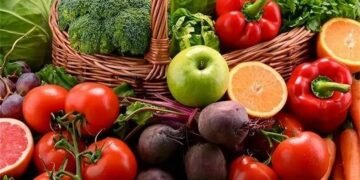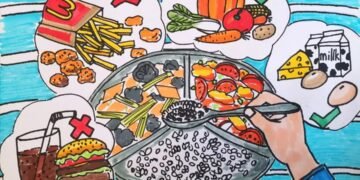Nestled in Nature’s Embrace: Jyrgalan’s Transformation
In the embracing arms of the Kyrgyz Republic’s eastern mountains, by the serene shores of Issyk-Kul Lake, lies Jyrgalan. This village, once an uncharted haven with a modest population of a thousand souls, is blossoming into a beacon of sustainable tourism. The verdant trails that weave through its landscape beckon hikers and bikers from afar, but with the allure of exploration comes the shadow of environmental impact—plastic and waste.
A Pivotal Step Towards Sustainability
The United Nations Environment Programme (UNEP) has recognized the urgency of Jyrgalan’s ecological challenge. With their guidance, the village has unveiled its inaugural waste collection facility. This initiative is part of the “Sustainable Tourism and Management of Plastic and Food Waste” pilot project, a cornerstone of UNEP’s Global Opportunities for Sustainable Development Goals 2022-23 programme.
Empowerment Through Environmental Action
For local entrepreneurs like Bermet Japarova, proprietor of the Baitor Jyrgalan Guesthouse, the facility is a revelation. No longer must her team embark on costly and laborious journeys to dispose of waste. The facility stands not just as a repository for refuse but as a symbol of progress, offering green jobs and empowering women like Japarova in the process.
A Vision for the Future
Arnold Kreilhuber, Director of the UNEP Europe Office, envisions this project as a prototype for wider replication. The goal is to cultivate sustainable tourism, waste prevention, and management across Central Asia, fostering a synergy between authorities, civil society, and the private sector.

The Wider War Against Waste
In the Kyrgyz Republic, the battle against waste, particularly plastic, is a pressing one. Landfills are brimming with it, and food waste compounds the issue. The UNEP project, through its implementation by ESG Central Asia, seeks to turn the tide by enhancing small business capacities and reinforcing women’s roles in leadership.
A Community’s Commitment
Inhabitants like Gulmira Primova, co-owner of the Alakol Guesthouse, are already reaping the benefits. By integrating waste sorting and management into her business model, Primova is not just cleaning up Jyrgalan; she’s setting a precedent for the entire region.
The Global Plastic Predicament
The plastic problem is gargantuan, with humanity producing 430 million tonnes annually, most of which swiftly becomes waste. The economic and ecological ramifications are astronomical, and without decisive action, our water bodies, including pristine lakes like Issyk-Kul, will suffer greatly.
A Call to Collective Action
Experts agree that tackling plastic pollution necessitates a concerted effort from all sectors. The UNEP recommends strategies such as extended producer responsibility, enhanced recycling, and a reduction in single-use plastics production. The Kyrgyz Republic is poised to play its part, with its attendance at the upcoming Intergovernmental Negotiating Committee (INC-2) and interest in the Global Tourism Plastics Initiative.
Jyrgalan: A Case Study in Growth and Responsibility
From a solitary guesthouse to a thriving hub of twenty-one, Jyrgalan’s growth is a testament to its potential. As the village prepares for World Environment Day, it stands as a model of how rapid development can harmonize with environmental stewardship.
About World Environment Day
World Environment Day, celebrated on 5 June, is a clarion call for ecological action. Since 1974, UNEP has spearheaded this day to galvanize global environmental awareness and action. This year’s focus is on the plastic pollution crisis, spotlighting the solutions that can lead us to a cleaner, greener future.











































